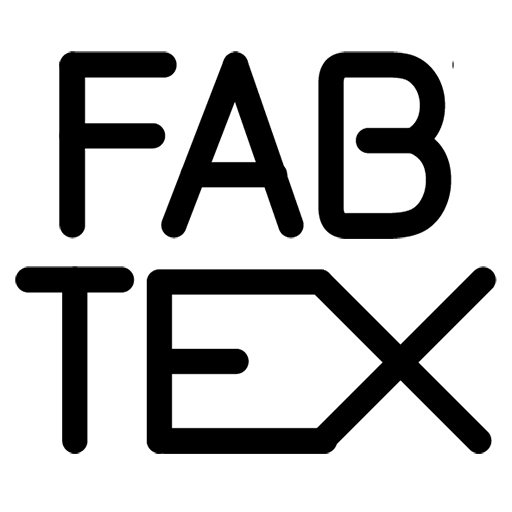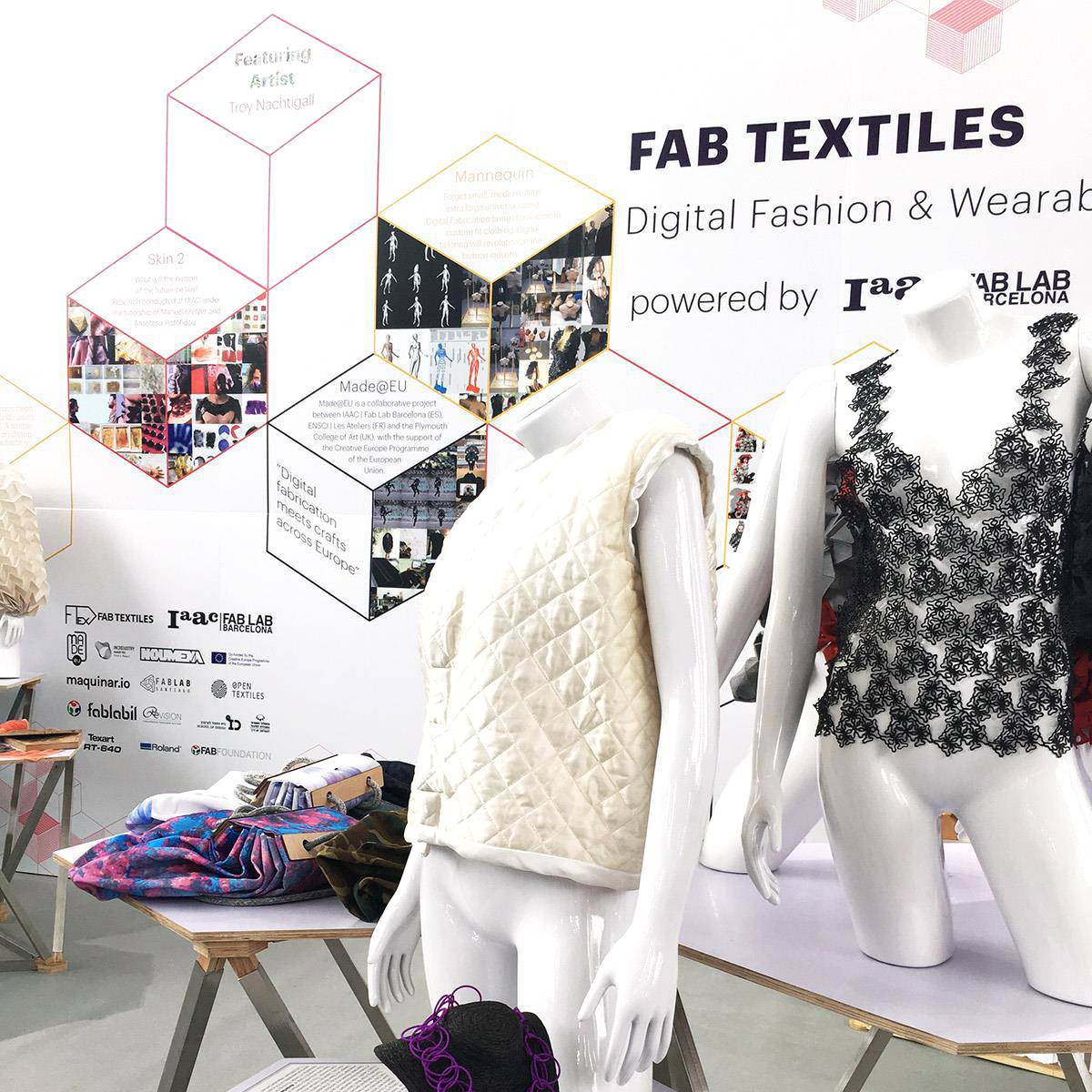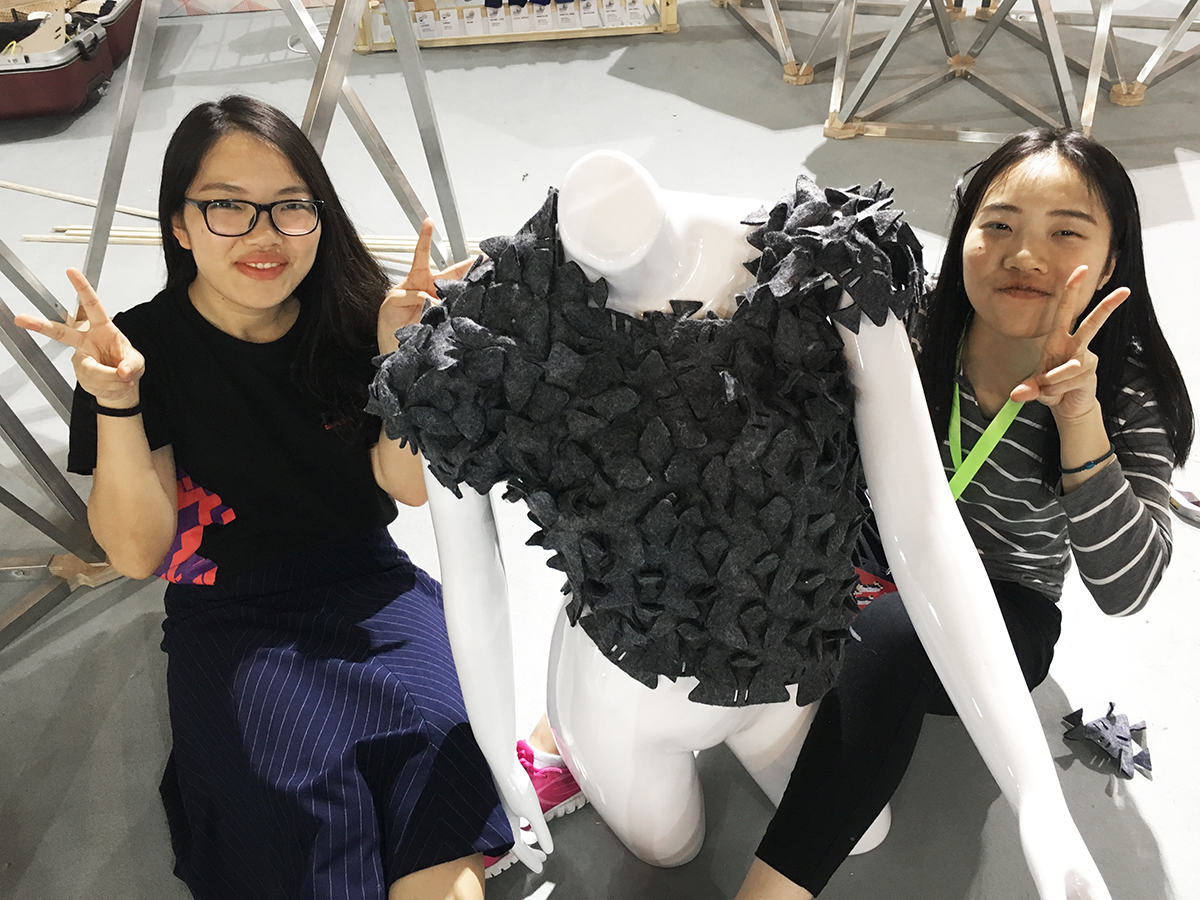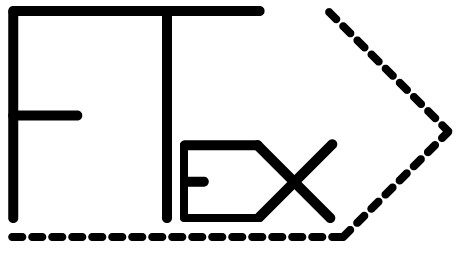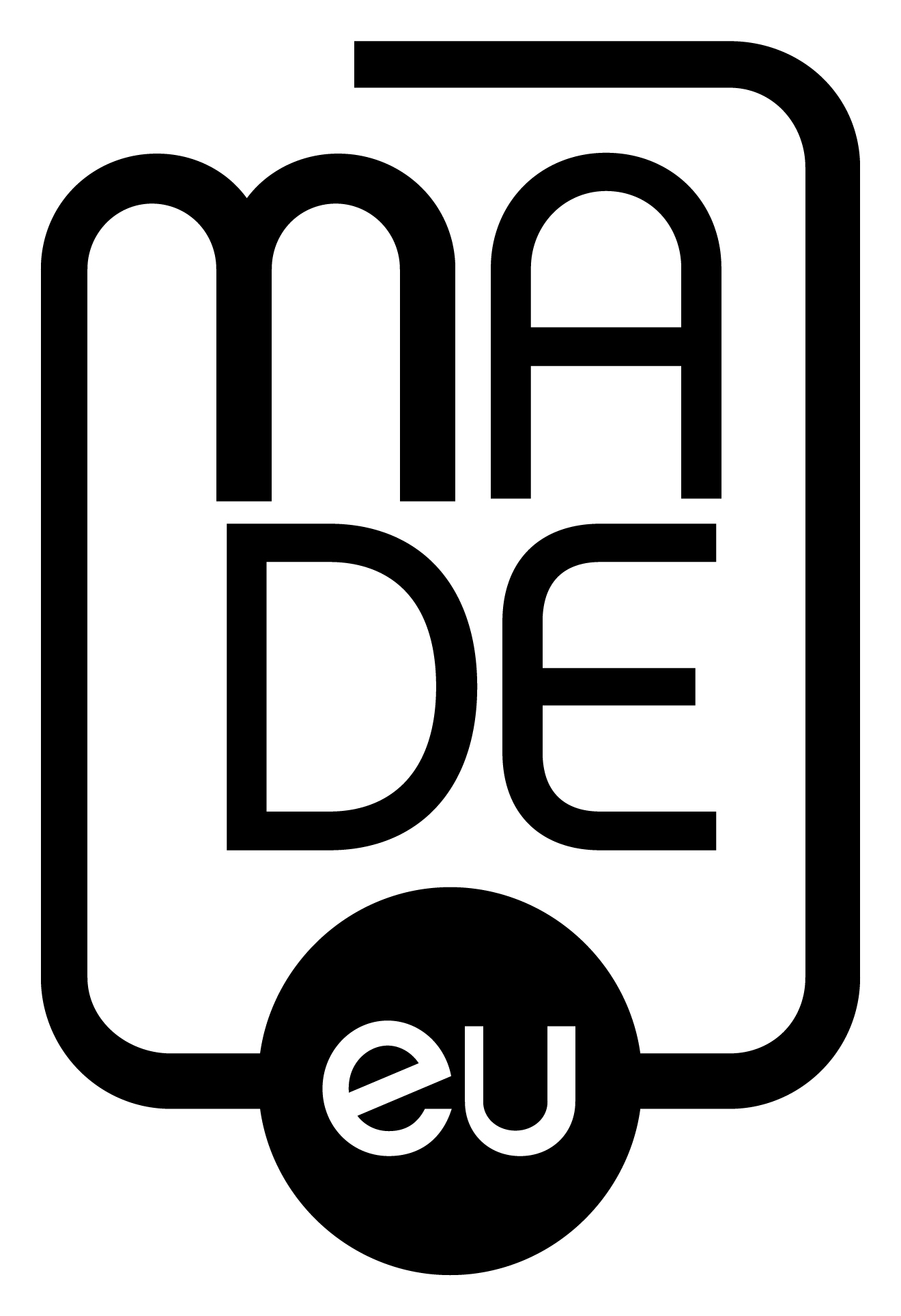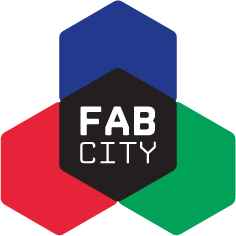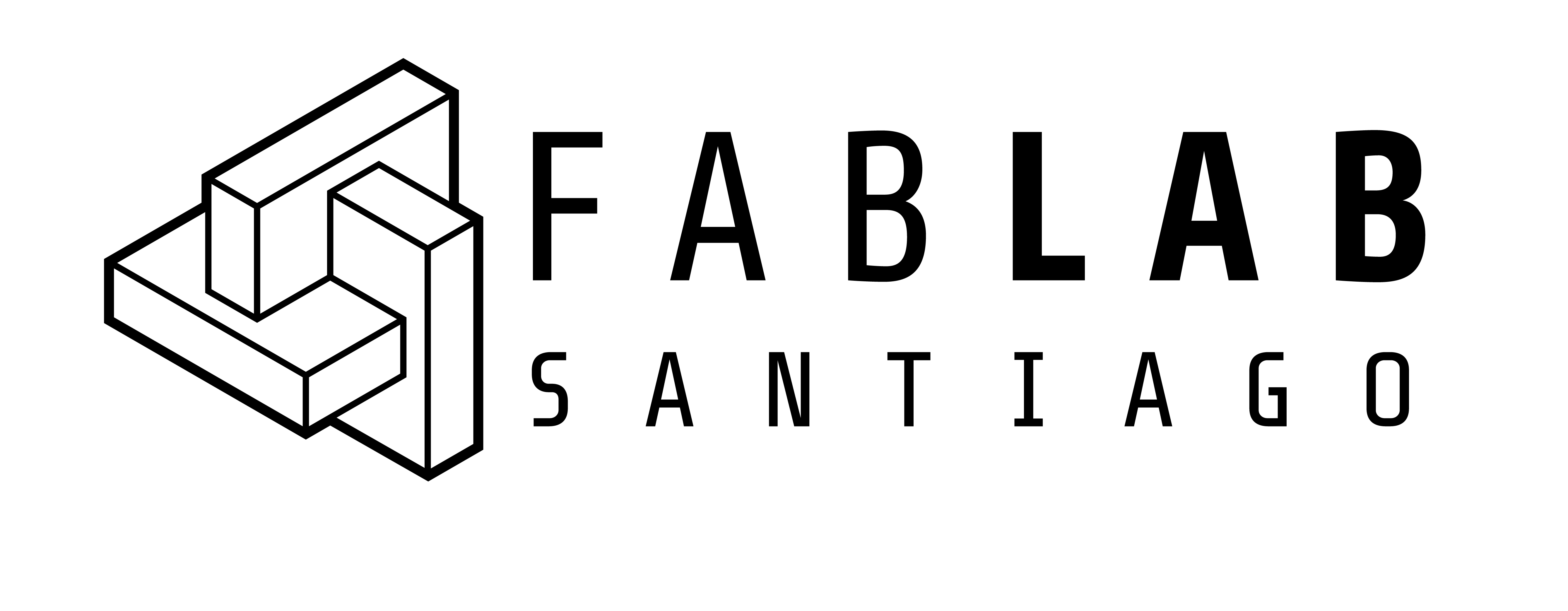The 3rd edition for the Digital Fashion and Wearables was exhibited during Fab12 Conference in Shenzhen and counted with the participation of many diverse and versatile projects. Our mission is to showcase projects that demonstrate digital fabrication applications in education, research and entrepreneurship that are transforming the fashion industry and innovating its technologies creatively.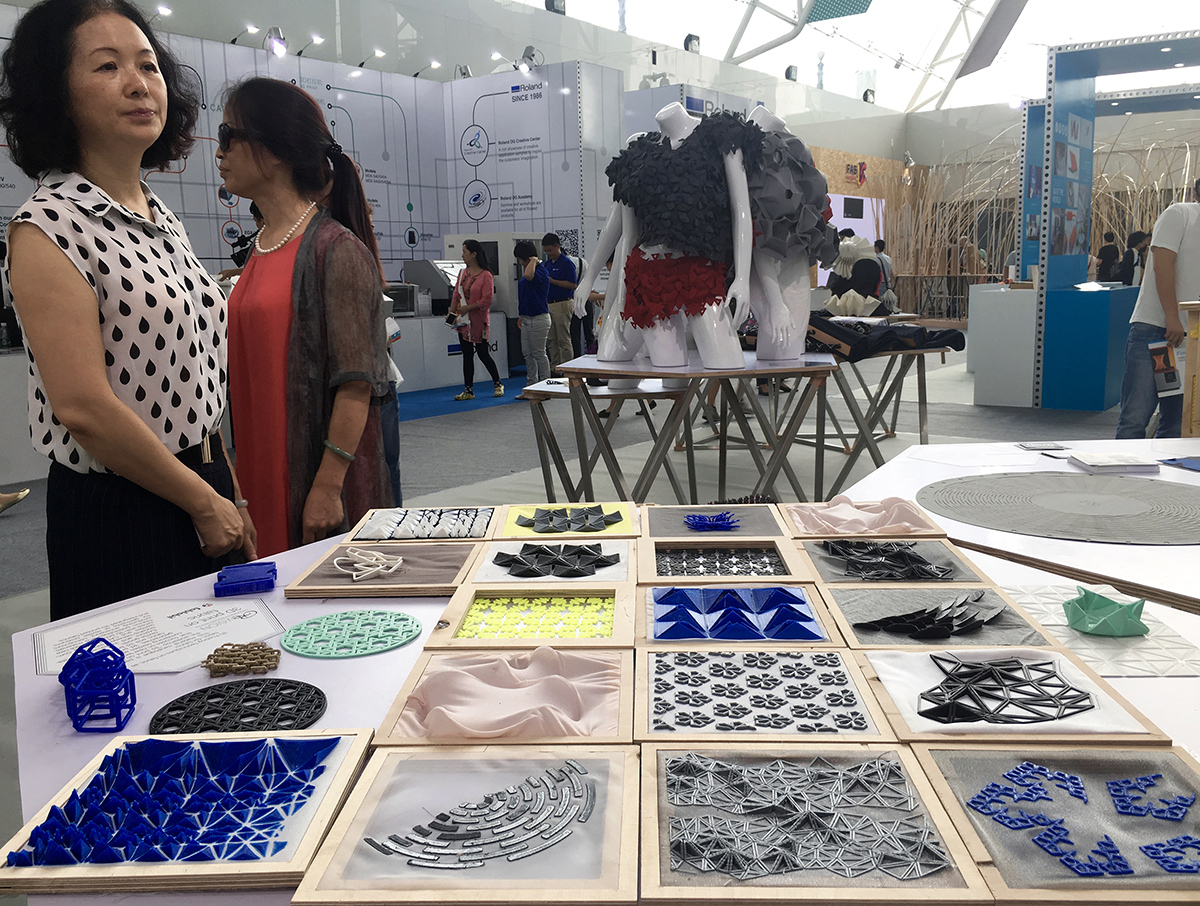 Extended material catalogues from Fab textiles, OpenTextiles and Fab Lab Il form part of the parallel research being conducted in the fab labs. The material catalogue is one of the most important steps when investigating and is part of the textile lab inventory. All the research conducted is being gathered and documented in the forms of tangible material catalogues that can pass from generation to generation of investigators that explore the possibilities of each technique and material and empower parallel developments.
Extended material catalogues from Fab textiles, OpenTextiles and Fab Lab Il form part of the parallel research being conducted in the fab labs. The material catalogue is one of the most important steps when investigating and is part of the textile lab inventory. All the research conducted is being gathered and documented in the forms of tangible material catalogues that can pass from generation to generation of investigators that explore the possibilities of each technique and material and empower parallel developments.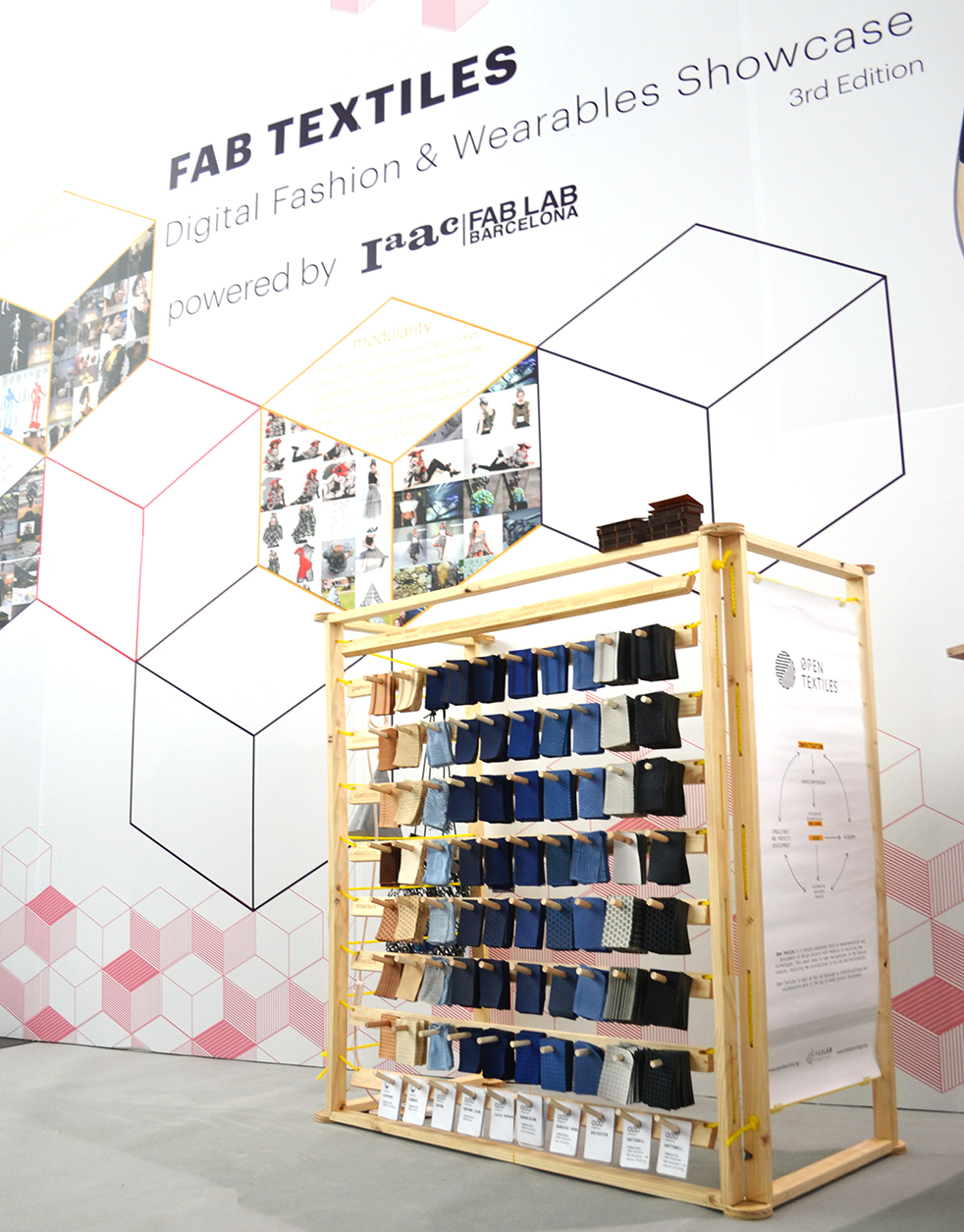 Two projects developed during Madeat.eu residencies under the mentorship, technical support and guidance of the Fabtextiles captured the attention of the public for the artistic applications in the field of performative arts that wearables are bringing to the textile and fashion industry. Elastica a wearable suit developed by Cristian Rizzuti controls sound by the dancing. The artist proposes new mediums for creation for the performers to extend and augment their body using it as an instrument that harmonically brings sound and movement together. Batuque developed by Ricardo O’ Nascimento, inspired from the Afro-Brazilian faith Candomblé, creates a creature like ceremonial atmosphere that moves with the rhythm of the sound.
Two projects developed during Madeat.eu residencies under the mentorship, technical support and guidance of the Fabtextiles captured the attention of the public for the artistic applications in the field of performative arts that wearables are bringing to the textile and fashion industry. Elastica a wearable suit developed by Cristian Rizzuti controls sound by the dancing. The artist proposes new mediums for creation for the performers to extend and augment their body using it as an instrument that harmonically brings sound and movement together. Batuque developed by Ricardo O’ Nascimento, inspired from the Afro-Brazilian faith Candomblé, creates a creature like ceremonial atmosphere that moves with the rhythm of the sound.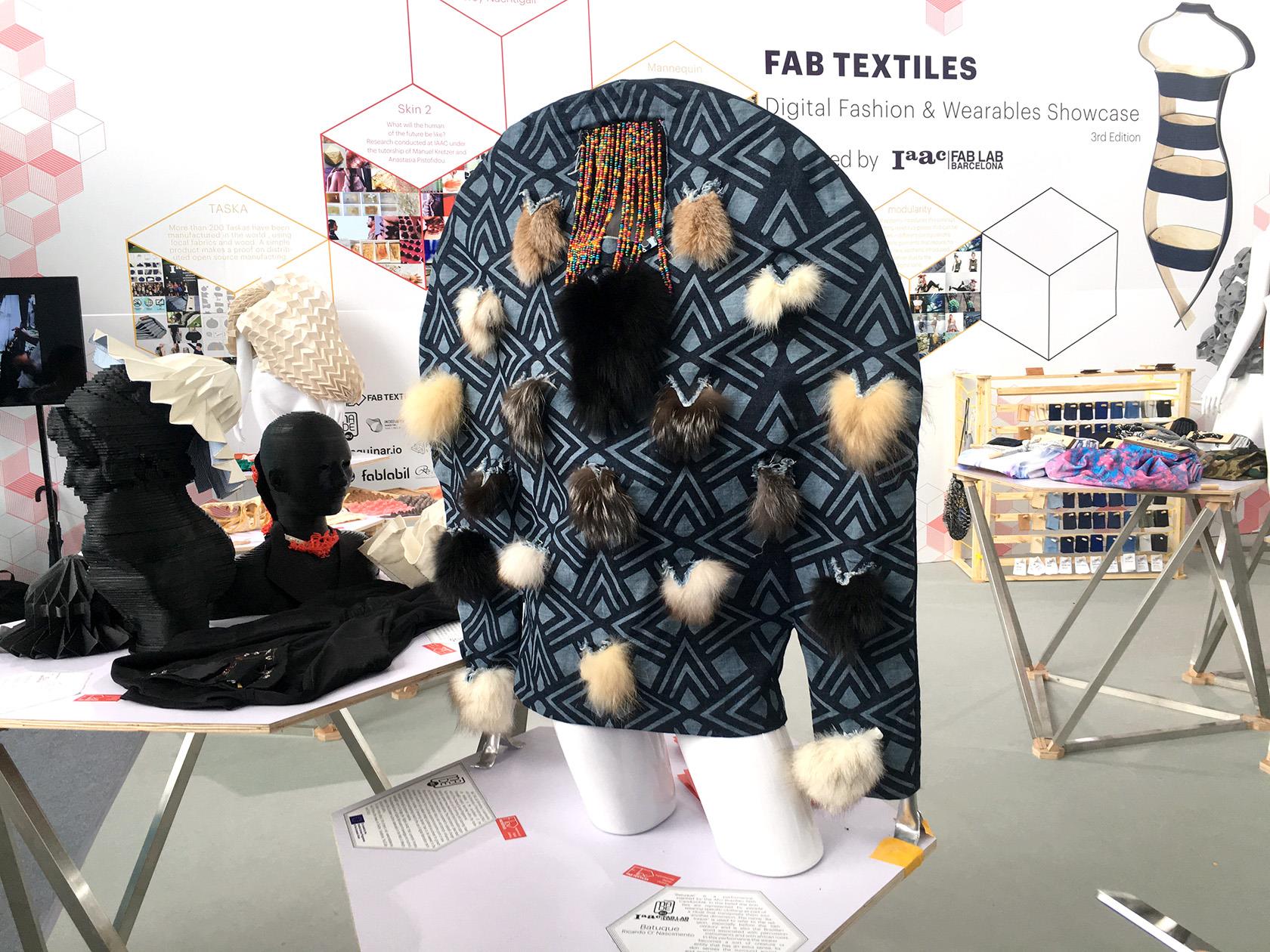 Products that emerge and can be produced in small series prove the ability of the Fab Labs to favor new talented designers, generate new markets and empower circular economy models. Taska Bag is one of them, having fabricated more than 100 versions in a distributed manufacturing to eliminate long distance shipping, to use locally sourced materials anywhere and gives the customer a change for easy customization. Maquinar.io is a project of Fab Lab Santiago that works with local designers and has an online shop with innovative products made in Chile.
Products that emerge and can be produced in small series prove the ability of the Fab Labs to favor new talented designers, generate new markets and empower circular economy models. Taska Bag is one of them, having fabricated more than 100 versions in a distributed manufacturing to eliminate long distance shipping, to use locally sourced materials anywhere and gives the customer a change for easy customization. Maquinar.io is a project of Fab Lab Santiago that works with local designers and has an online shop with innovative products made in Chile.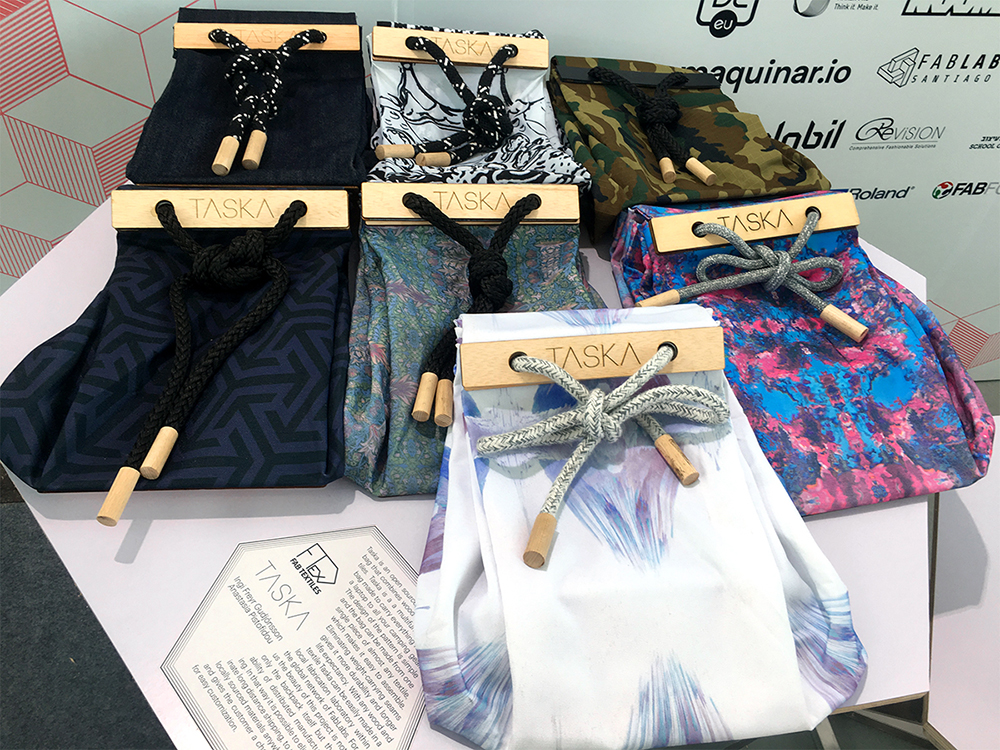 Beyond conventional materials goes the research conducted by IAAC students on the seminar Skin2. The seminar seeks to answer through prototypes and speculative design what will the human of the future be like by augmenting the self and extending the body. Working with bioplastics and kombucha supplemented through embedded electronics a crucial task for the students was to think about futuristic applications and implications of a second skin.
Beyond conventional materials goes the research conducted by IAAC students on the seminar Skin2. The seminar seeks to answer through prototypes and speculative design what will the human of the future be like by augmenting the self and extending the body. Working with bioplastics and kombucha supplemented through embedded electronics a crucial task for the students was to think about futuristic applications and implications of a second skin.
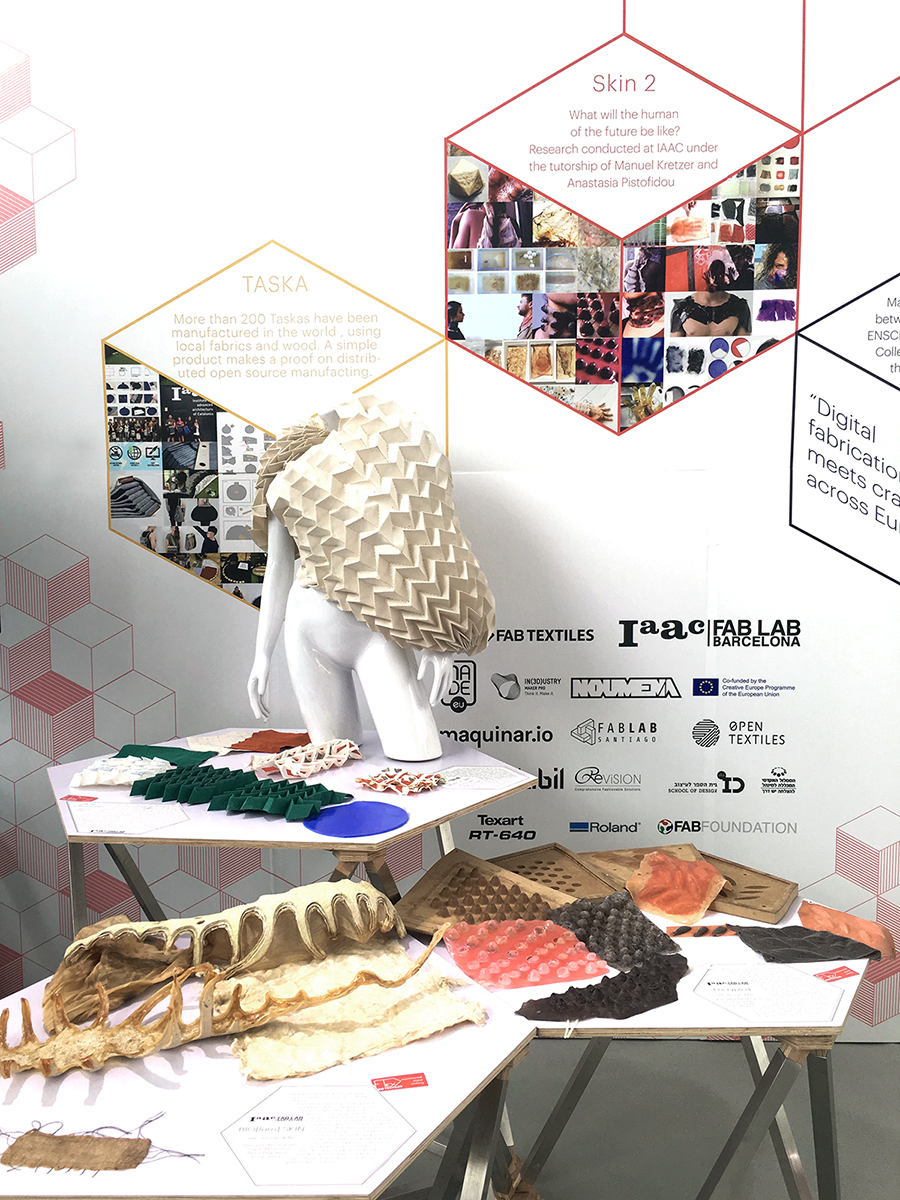 Parametric computational design for fashion and education show us how digital tools can be used for designing systems for generative products. Hatori, by FabTextiles is a parametric origami hat that can be modified according to the aesthetics of the user and laser cut in different materials. Noumena‘s workshop Imprimida shows us 3D printed applications of computational design, physical computing and digital fabrication during an eight day workshop.
Parametric computational design for fashion and education show us how digital tools can be used for designing systems for generative products. Hatori, by FabTextiles is a parametric origami hat that can be modified according to the aesthetics of the user and laser cut in different materials. Noumena‘s workshop Imprimida shows us 3D printed applications of computational design, physical computing and digital fabrication during an eight day workshop.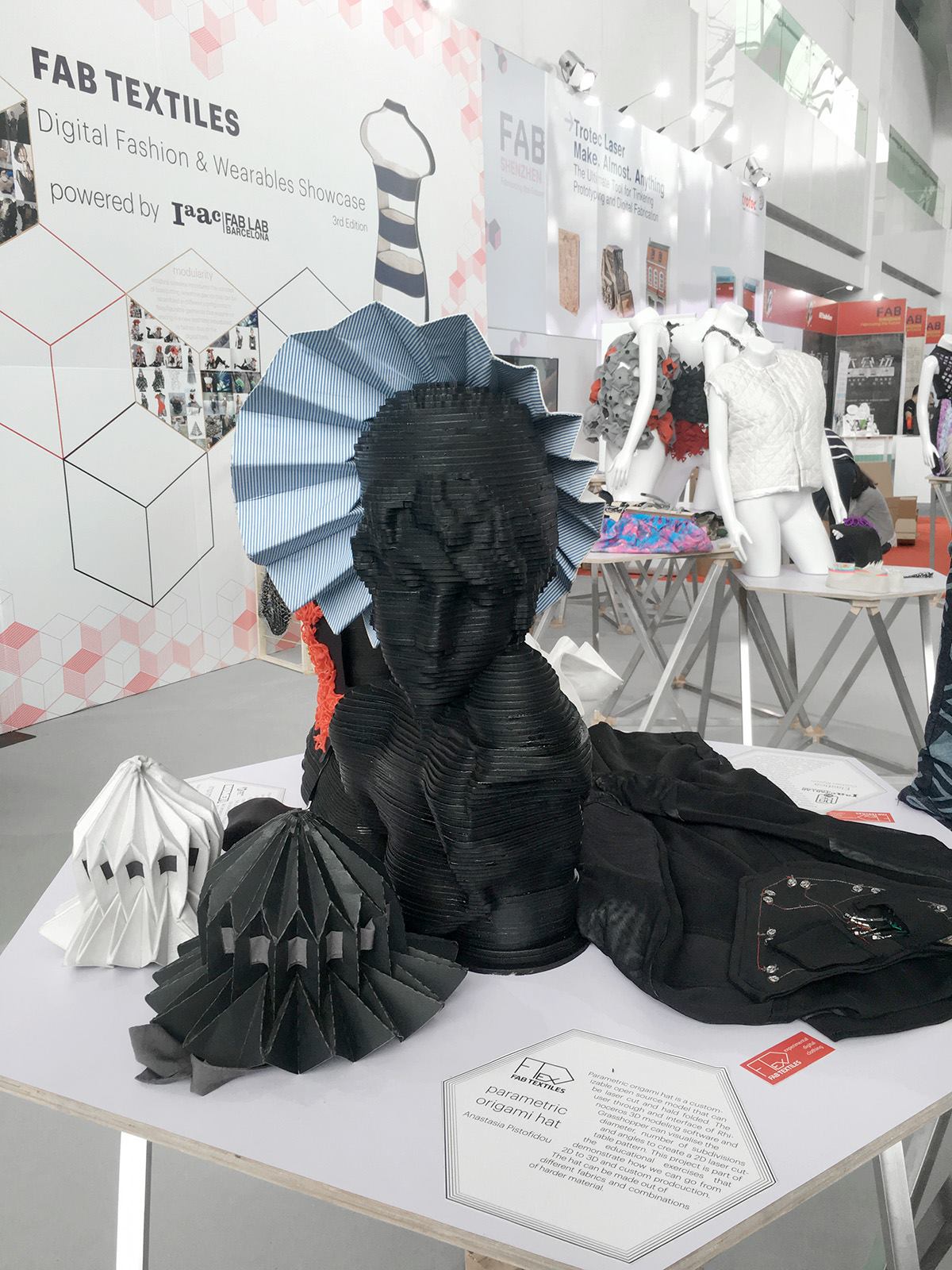 3D printing is an important player for the industry focus, opening the possibilities of new aesthetics, new materials and concepts for fashion. We already see lots of brands having implemented 3D printing in their products which proves again that the fashion industry goes ahead when putting new technologies in the chain production. Our featuring artist, Troy Nachtigall presented his creations on 3D printing with a highlight on his 3D printed colorful shoes, Veronica Betancur presented a 3D printed garment printed entirely in flexible PLA with the printers of her University in Colombia as her final thesis project after her 6 month internship at fabtextiles lab in Fab Lab Barcelona
3D printing is an important player for the industry focus, opening the possibilities of new aesthetics, new materials and concepts for fashion. We already see lots of brands having implemented 3D printing in their products which proves again that the fashion industry goes ahead when putting new technologies in the chain production. Our featuring artist, Troy Nachtigall presented his creations on 3D printing with a highlight on his 3D printed colorful shoes, Veronica Betancur presented a 3D printed garment printed entirely in flexible PLA with the printers of her University in Colombia as her final thesis project after her 6 month internship at fabtextiles lab in Fab Lab Barcelona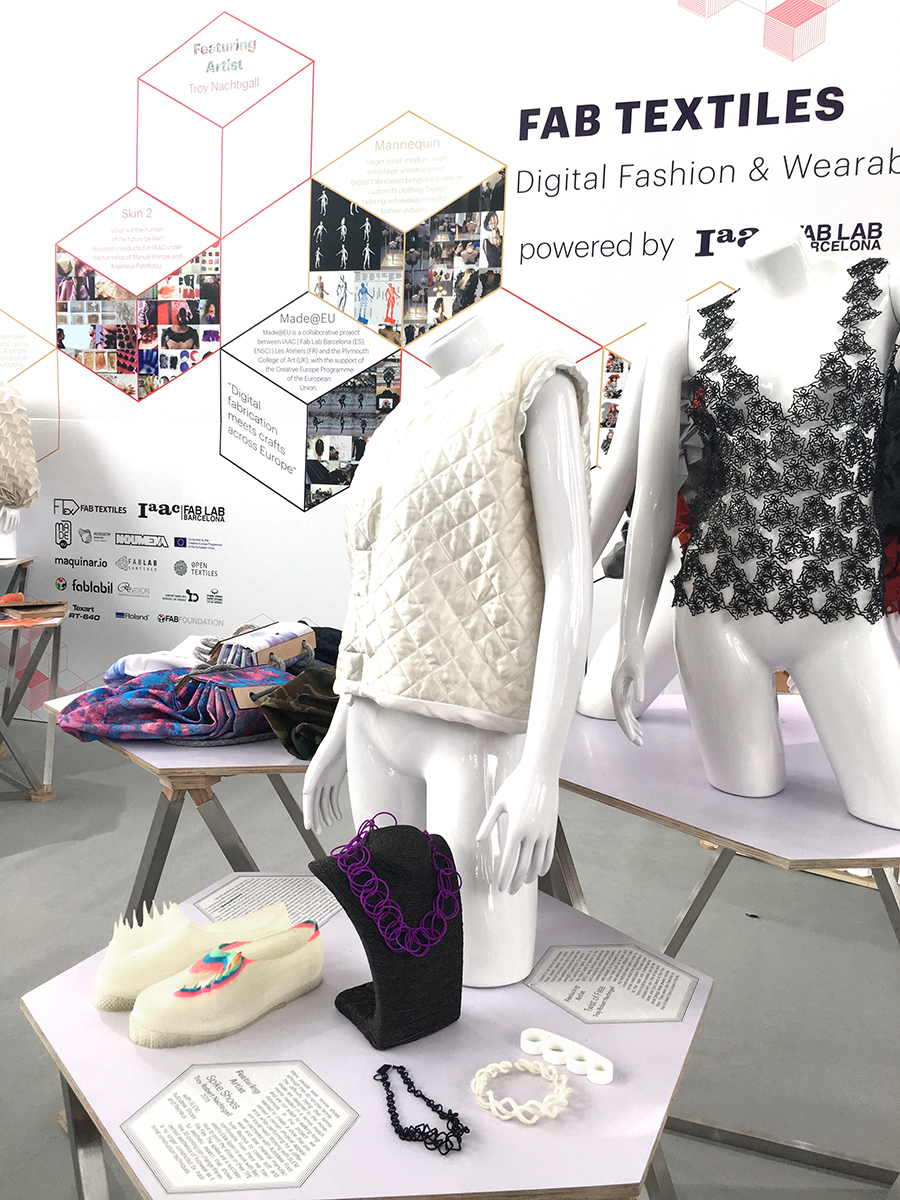
The exhibition was presented during Fab13 festival and was supported by SIDA, Shenzhen Industrial Design Profession Association
